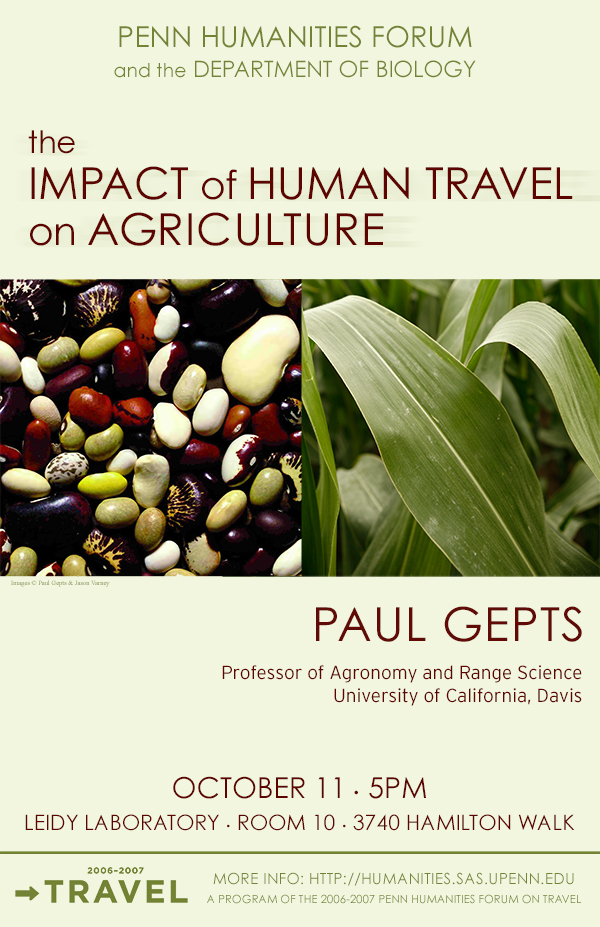The transition from hunting and gathering to agriculture 10,000 years ago was a milestone in human evolution. Over the millennia since, migration, exploration, conquest, and developments in transportation have turned agriculture from a mechanism of adaptation into a global production system. The distinguished biologist Paul Gepts will describe the worldwide spread of agriculture through human travel and its profound impact on the ecosystems of our planet.
Paul Gepts is an agronomist who studies the evolution, domestication, and biodiversity of crops. As head of the Paul Gepts Lab at UC Davis, he and his team are concerned with understanding what processes have shaped how crop plants have evolved under cultivation. He is particularly concerned with Phaseolus beans because, as he says, "they are such an important part of the human diet, especially in developing countries, and provide many health benefits."
Professor of Agronomy and Range Science
University of California, Davis



